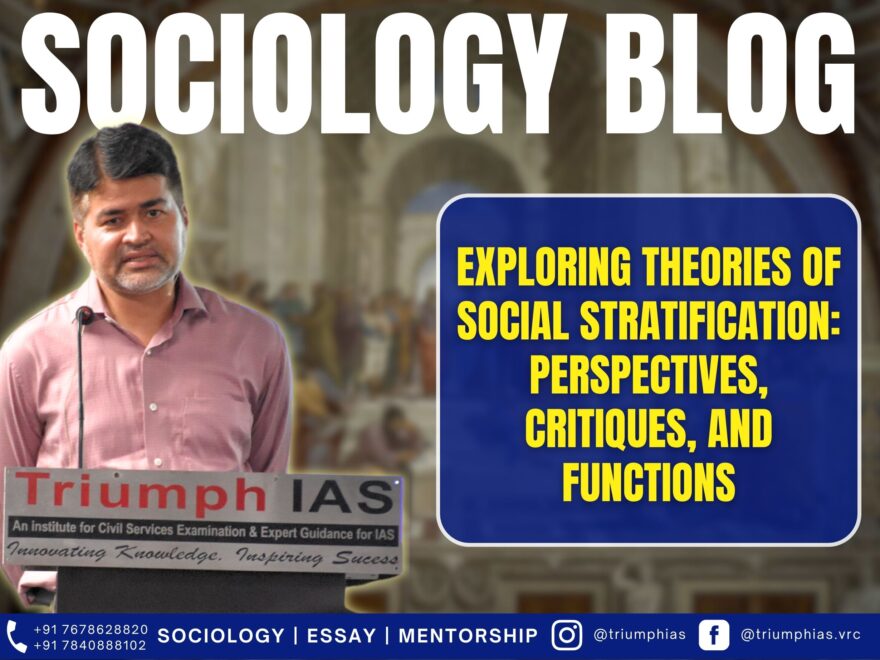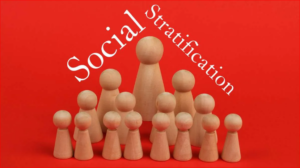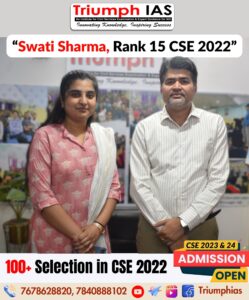Theories of Social Stratification
Relevant for Sociology Paper-1 (Unit-5)

- The Structural-Functionalist perspective aims to elucidate social stratification based on its role in maintaining social order and stability within society.
- According to Talcott Parsons, social order and stability are contingent upon a shared value consensus in society. Individuals who adhere to these values are ranked higher than others. For instance, in a society that values individual achievement, a successful business executive would be ranked above others, whereas in a society that values bravery and gallantry, individuals engaged in battles and wars would hold a higher rank.
- Functionalists assert that social groups in society have cooperative and interdependent relationships. In a highly specialized industrial society, some people specialize in organization and planning, while others follow their directives. Certain positions carry greater functional importance in society than others, leading to higher ranks in the social hierarchy and greater rewards for those occupying such positions. Consequently, this results in an unequal distribution of power and prestige.
Kinsley Davis and Wilbert Moor
- They extensively discussed the functional necessity of social stratification, the factors influencing positional rank, the societal functions of stratification, and the variations in stratified systems.
- They argued that the unequal distribution of rights and privileges leading to social inequality serves as a motivation for individuals to fulfill the responsibilities associated with a particular position and strive for positions that offer more prestige and esteem. Social inequality, therefore, ensures that the most crucial positions are occupied by the most qualified individuals. Consequently, every society, regardless of its complexity, must differentiate people based on both prestige and esteem, thereby possessing a certain level of institutionalized inequality (Davis and Moore).
- The positions that offer the greatest rewards and highest ranks are those considered vital for society and require extensive training or exceptional talent. They emphasized that a society must provide sufficient rewards only for positions of high rank to ensure they are competently filled. Additionally, the importance of a position may vary between societies, and what holds significant value in one society might not hold the same significance in another.
Kinsley Davis and Wilbert Moor summarizes their central argument in the following words :
- In every society, specific positions hold greater functional importance and require specialized skills for their proper execution. Only a limited number of individuals possess the natural talents that can be cultivated into the necessary skills for these positions.
- The process of transforming talents into skills involves a period of training, during which individuals undergoing the training must make certain sacrifices. To incentivize these talented individuals to undergo such sacrifices and acquire the required training, their future positions must come with an inducement value in the form of differential rewards. These rewards refer to privileged and disproportionate access to the scarce and highly desirable benefits offered by the society.
- These desirable benefits include rights, privileges, and perquisites that contribute to various aspects of life, such as sustenance and comfort, humor or diversion, self-respect, and personal growth. The unequal access to these basic rewards in society leads to the differentiation of prestige and esteem among the various strata.
- As a result, social inequality among different strata in terms of the allocation of scarce and desirable benefits, along with the distribution of prestige and esteem, is both functionally necessary and an inevitable aspect of any society.
Melvin Tumin Critisises the functional proposition of Davis and Moore.
- Tumin presents arguments against the proposition that certain positions in society are functionally more important than others. For instance, he disagrees with the notion that engineers are inherently more crucial than unskilled workers in a factory, emphasizing that both categories of labor are essential for the factory’s functioning. Tumin highlights that the perceived importance and respectability of specific skills are influenced by the bargaining power of those who possess them and the prevailing rating system. Motivation, according to Tumin, is influenced by various factors, with rewards and inducements being just one aspect.
- Another point of contention raised by Tumin is regarding the assumption that there is a limited number of individuals with talents in society. He argues that determining the amount of talent in a society is challenging, especially in rigidly stratified societies that may struggle to identify new talents due to socially inherited rewards and opportunities. Unequal motivation in a generation, Tumin explains, can be attributed to unequal distribution of rewards in the preceding generation, as access to privileged positions is restricted by the societal elites, similar to the Indian Caste System.
- Regarding the concept of sacrifice introduced by Davis and Moore, Tumin disputes the idea that talented individuals undergoing training necessarily involve personal sacrifices. He points out that the costs of training may be borne by society at large, making the need for differential rewards to compensate for sacrifice questionable.
- Furthermore, Tumin challenges the assumption that differential access to desired rewards is the most efficient way to attract appropriate talent for top positions. He believes that other aspects, such as the joy in work and work satisfaction, as well as institutionalized social importance, should be considered. According to Davis and Moore, rewards can be categorized into three types contributing to sustenance and comfort, humor and diversion, and self-respect and ego-expansion. Tumin argues that it is difficult to determine which type of reward induces motivation, as societies emphasize different types of rewards to strike a balance between responsibility and recognition.
- In conclusion, Tumin questions the necessity of social inequality based on the allocation of scarce and desired goods and the amount of prestige and esteem they bring. He suggests that if differential power and property are perceived as commensurate with differential responsibilities and culturally defined as resources rather than rewards, there may be no need for distinct differentials in prestige and esteem.
Davis and Moore’s Argument:
- Davis responds by asserting that Tumin aims to dismantle the idea of institutionalized inequality but fails to explain the universality of stratified inequality. While Davis and Moore seek to understand why stratification exists in society, Tumin argues that it is not necessary. They are evidently addressing different aspects of the issue. Davis accuses Tumin’s critique of being confused between abstract or theoretical reasoning and raw, empirical generalizations. Davis defends his position by clarifying that his primary concern was with stratified inequality as a general property of social systems, involving a high degree of abstraction.
- Tumin’s critical assessment of the theory proposed by Davis and Moore is solely based on one article, conveniently disregarding other publications that address several questions raised by him. Tumin’s own understanding and presentation of Davis and Moore’s theory are inadequate, leading to inconsistencies in his concept of stratification. Moore also explicitly points out that Tumin has not clearly defined social stratification, causing him to mistakenly assume that differential rewards and inequality of opportunity are the same thing.
Critique to Structural-Functional Theory of Stratification
- Social stratification systems serve to restrict the discovery of the full range of talent available in a society. This limitation arises due to unequal access to motivation, recruitment channels, and training centers. By narrowing the available talent pool, social stratification systems hinder the expansion of a society’s productive resources, especially when compared to conditions with greater equality of opportunity.
- Furthermore, social stratification systems grant the elite political power, enabling them to promote and dominate an ideology that justifies the existing status quo as “logical,” “natural,” and “morally right.” Consequently, these systems act as conservative forces within societies where they are present.
- Another function of social stratification systems is to unevenly distribute favorable self-images among the population. This unequal distribution can hinder the development of creative potential inherent in individuals, as favorable self-images are crucial for nurturing this potential.
- Additionally, when inequalities in social rewards remain unacceptable to the less privileged, social stratification systems may encourage hostility, suspicion, and distrust among different segments of society. This, in turn, limits the possibilities of achieving extensive social integration.
To master these intricacies and fare well in the Sociology Optional Syllabus, aspiring sociologists might benefit from guidance by the Best Sociology Optional Teacher and participation in the Best Sociology Optional Coaching. These avenues provide comprehensive assistance, ensuring a solid understanding of sociology’s diverse methodologies and techniques
Social Stratification, Structural-Functionalist Perspective, Kinsley Davis, Wilbert Moor, Melvin Tumin, Stratification Critiques, Functional Importance, Prestige, Esteem, Institutionalized Inequality, Talent, Training, Rewards, Differential Access, Social Order, Best Sociology Optional Teacher, Best Sociology Optional Coaching, Sociology Optional Syllabus.

Sociology Optional Syllabus
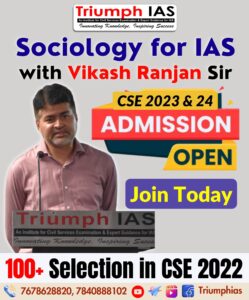
Course Commencement Information
- Enrolment is limited to a maximum of 250 Seats.
- Course Timings: 08:30 To 10:30
- Course Duration: 4.5 Months
- Class Schedule: Monday to Saturday
- Batch Starts from: 24th July

Instructional Format:
- Each class session is scheduled for a duration of two hours.
- At the conclusion of each lecture, an assignment will be distributed by Vikash Ranjan Sir for Paper-I & Paper-II coverage.
Study Material:
- A set of printed booklets will be provided for each topic. These materials are succinct, thoroughly updated, and tailored for examination preparation.
- A compilation of previous years’ question papers (spanning the last 27 years) will be supplied for answer writing practice.
- Access to PDF versions of toppers’ answer booklets will be available on our website.
- Post-course, you will receive two practice workbooks containing a total of 10 sets of mock test papers based on the UPSC format for self-assessment.
Additional Provisions:
- In the event of missed classes, video lectures will be temporarily available on the online portal for reference.
- Daily one-on-one doubt resolution sessions with Vikash Ranjan Sir will be organized post-class.
Syllabus of Sociology Optional
Paper-1
FUNDAMENTALS OF SOCIOLOGY
- Sociology – The Discipline
- Sociology as Science:
- Research Methods and Analysis:
- Sociological Thinkers:
- Karl Marx- Historical materialism, mode of production, alienation, class struggle.
- Emile Durkheim- Division of labour, social fact, suicide, religion and society.
- Max Weber- Social action, ideal types, authority, bureaucracy, protestant ethic and the spirit of capitalism.
- Talcott Parsons- Social system, pattern variables.
- Robert K. Merton- Latent and manifest functions, conformity and deviance, reference groups.
- Mead – Self and identity.
- Stratification and Mobility:
- Concepts- equality, inequality, hierarchy, exclusion, poverty and deprivation.
- Theories of social stratification- Structural functionalist theory, Marxist theory, Weberian theory.
- Dimensions – Social stratification of class, status groups, gender, ethnicity and race.
- Social mobility- open and closed systems, types of mobility, sources and causes of mobility.
- Works andEconomic Life:
- Social organization of work in different types of society- slave society, feudal society, industrial /capitalist society
- Formal and informal organization of work.
- Labour and society.
- Politics and Society:
- Sociological theories of power.
- Power elite, bureaucracy, pressure groups, and political parties.
- Nation, state, citizenship, democracy, civil society, ideology.
- Protest, agitation, social movements, collective action, revolution.
- Religion and Society:
- Sociological theories of religion.
- Types of religious practices: animism, monism, pluralism, sects, cults.
- Religion in modern society: religion and science, secularization, religious revivalism, fundamentalism.
- Systems of Kinship:
- Family, household, marriage.
- Types and forms of family.
- Lineage and descent.
- Patriarchy and sexual division of labour.
- Contemporary trends.
- Social Change in Modern Society:
- Sociological theories of social change.
- Development and dependency.
- Agents of social change.
- Education and social change.
- Science, technology and social change.
Paper-2
INDIAN SOCIETY: STRUCTURE AND CHANGE
INTRODUCING INDIAN SOCIETY
- Perspectives on the study of Indian society:
- Indology (GS. Ghurye).
- Structural functionalism (M N Srinivas).
- Marxist sociology (A R Desai).
- Impact of colonial rule on Indian society :
- Social background of Indian nationalism.
- Modernization of Indian tradition.
- Protests and movements during the colonial period.
- Social reforms.
SOCIAL STRUCTURE
- Perspectives on the study of Indian society:
- The idea of Indian village and village studies.
- Agrarian social structure – evolution of land tenure system, land reforms.
- Caste System:
- Perspectives on the study of caste systems: GS Ghurye, M N Srinivas, Louis Dumont, Andre Beteille.
- Features of caste system.
- Untouchability – forms and perspectives.
- Tribal communities in India
- Definitional problems.
- Geographical spread.
- Colonial policies and tribes.
- Issues of integration and autonomy.
- Social Classes in India:
-
- Agrarian class structure.
-
-
- Industrial class structure.
- Middle classes in India.
-
- Systems of Kinship in India:
- Lineage and descent in India.
- Types of kinship systems.
- Family and marriage in India.
- Household dimensions of the family.
- Patriarchy, entitlements and sexual division of labour
- Religion and Society:
- Religious communities in India.
- Problems of religious minorities.
- Patriarchy, entitlements and sexual division of labour
SOCIAL CHANGES IN INDIA
- Visions of Social Change in India:
- Idea of development planning and mixed economy
- Constitution, law and social change.
- Education and social change.
- Rural and Agrarian transformation in India:
- Programmes of rural development, Community Development Programme, cooperatives,poverty alleviation schemes
- Green revolution and social change.
- Changing modes of production in Indian agriculture.
- Problems of rural labour, bondage, migration.
3. Industrialization and Urbanisation in India:
-
- Evolution of modern industry in India.
- Growth of urban settlements in India.
- Working class: structure, growth, class mobilization.
- Informal sector, child labour
- Slums and deprivation in urban areas.
4. Politics and Society:
-
- Nation, democracy and citizenship.
- Political parties, pressure groups , social and political elite
- Regionalism and decentralization of power.
- Secularization
5. Social Movements in Modern India:
-
- Peasants and farmers movements.
- Women’s movement.
- Backward classes & Dalit movement.
- Environmental movements.
- Ethnicity and Identity movements.
6. Population Dynamics:
-
- Population size, growth, composition and distribution
- Components of population growth: birth, death, migration.
- Population policy and family planning.
- Emerging issues: ageing, sex ratios, child and infant mortality, reproductive health.
7. Challenges of Social Transformation:
-
- Crisis of development: displacement, environmental problems and sustainability
- Poverty, deprivation and inequalities.
- Violence against women.
- Caste conflicts.
- Ethnic conflicts, communalism, religious revivalism.
- Illiteracy and disparities in education.
About Vikash Ranjan Sir
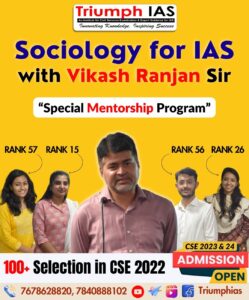
Vikash Ranjan Sir
(Best Sociology Optional Teacher, Educator, Mentor & Author)
Mr. Vikash Ranjan, arguably the Best Sociology Optional Teacher, has emerged as a versatile genius in teaching and writing books on Sociology & General Studies. His approach to the Sociology Optional Syllabus / Sociology Syllabus is remarkable, and his Sociological Themes and Perspectives are excellent. His teaching aptitude is Simple, Easy and Exam Focused. He is often chosen as the Best Sociology Teacher for Sociology Optional UPSC aspirants.
About Triumph IAS
Innovating Knowledge, Inspiring Success We, at Triumph IAS, pride ourselves on being the best sociology optional coaching platform. We believe that each Individual Aspirant is unique and requires Individual Guidance and Care, hence the need for the Best Sociology Teacher. We prepare students keeping in mind his or her strength and weakness, paying particular attention to the Sociology Optional Syllabus / Sociology Syllabus, which forms a significant part of our Sociology Foundation Course.
Course Features
Every day, the Best Sociology Optional Teacher spends 2 hours with the students, covering each aspect of the Sociology Optional Syllabus / Sociology Syllabus and the Sociology Course. Students are given assignments related to the Topic based on Previous Year Question to ensure they’re ready for the Sociology Optional UPSC examination.
Regular one-on-one interaction & individual counseling for stress management and refinement of strategy for Exam by Vikash Ranjan Sir, the Best Sociology Teacher, is part of the package. We specialize in sociology optional coaching and are hence fully equipped to guide you to your dream space in the civil service final list.
Specialist Guidance of Vikash Ranjan Sir
 Vikash Ranjan Sir is a specialist and arguably the Best Sociology Optional Teacher. His scientific, systematic, applied & exam-focused approach has helped many students to get selected in the Civil Services.
Vikash Ranjan Sir is a specialist and arguably the Best Sociology Optional Teacher. His scientific, systematic, applied & exam-focused approach has helped many students to get selected in the Civil Services.
The Best Sociology Teacher helps students to get a complete conceptual understanding of each and every topic of the Sociology Optional Syllabus / Sociology Syllabus, enabling them to attempt any of the questions, be direct or applied, ensuring 300+ Marks in Sociology Optional.
Classrooms Interaction & Participatory Discussion
The Best Sociology Teacher, Vikash Sir, ensures that there’s explanation & DISCUSSION on every topic of the Sociology Optional Syllabus / Sociology Syllabus in the class. The emphasis is not just on teaching but also on understanding, which is why we are known as the Best Sociology Optional Coaching institution.
Preparatory-Study Support
 The Sociology Foundation Course is designed to provide students with a strong base for the Sociology Optional. Study support from Triumph IAS & personal mentorship of the Best Sociology Teacher, Vikash Sir, is provided till final selection. Vikash Sir provides special guidance session for “Essay & Mains General Study” too, making our Sociology Course a well-rounded one.
The Sociology Foundation Course is designed to provide students with a strong base for the Sociology Optional. Study support from Triumph IAS & personal mentorship of the Best Sociology Teacher, Vikash Sir, is provided till final selection. Vikash Sir provides special guidance session for “Essay & Mains General Study” too, making our Sociology Course a well-rounded one.
Online Support System (Oss)
Get access to an online forum for value addition study material, journals, and articles relevant to Sociology on www.triumphias.com. Ask preparation related queries directly to the Best Sociology Teacher, Vikash Sir, via mail or WhatsApp.
Strategic Classroom Preparation
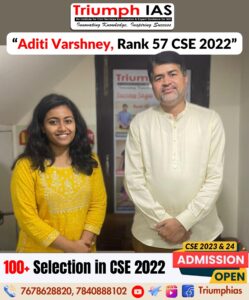 Our Sociology Course is characterized by interactive and applied teaching with an “Exam Focussed” approach, which inculcates a Sociological sense and competency in the students. The Sociology Foundation Course, lasting four months, includes theoretical discussion, concept building, and answer writing with a focus on learning & application.
Our Sociology Course is characterized by interactive and applied teaching with an “Exam Focussed” approach, which inculcates a Sociological sense and competency in the students. The Sociology Foundation Course, lasting four months, includes theoretical discussion, concept building, and answer writing with a focus on learning & application.
Comprehensive Study Material
We provide printed booklets of concise, well-researched, exam-ready study material for every unit of the Sociology Optional Syllabus / Sociology Syllabus, making us the Best Sociology Optional Coaching platform.
Why Vikash Ranjan’s Classes for Sociology?
Proper guidance and assistance are required to learn the skill of interlinking current happenings with the conventional topics. VIKASH RANJAN SIR at TRIUMPH IAS guides students according to the Recent Trends of UPSC, making him the Best Sociology Teacher for Sociology Optional UPSC.
At Triumph IAS, the Best Sociology Optional Coaching platform, we not only provide the best study material and applied classes for Sociology for IAS but also conduct regular assignments and class tests to assess candidates’ writing skills and understanding of the subject.
Choose The Best Sociology Optional Teacher for IAS Preparation?
At the beginning of the journey for Civil Services Examination preparation, many students face a pivotal decision – selecting their optional subject. Questions such as “which optional subject is the best?” and “which optional subject is the most scoring?” frequently come to mind. Choosing the right optional subject, like choosing the best sociology optional teacher, is a subjective yet vital step that requires a thoughtful decision based on facts. A misstep in this crucial decision can indeed prove disastrous.
Ever since the exam pattern was revamped in 2013, the UPSC has eliminated the need for a second optional subject. Now, candidates have to choose only one optional subject for the UPSC Mains, which has two papers of 250 marks each. One of the compelling choices for many has been the sociology optional. However, it’s strongly advised to decide on your optional subject for mains well ahead of time to get sufficient time to complete the syllabus. After all, most students score similarly in General Studies Papers; it’s the score in the optional subject & essay that contributes significantly to the final selection.
“A sound strategy does not rely solely on the popular
Opinion of toppers or famous YouTubers cum teachers.”
It requires understanding one’s ability, interest, and the relevance of the subject, not just for the exam but also for life in general. Hence, when selecting the best sociology teacher, one must consider the usefulness of sociology optional coaching in General Studies, Essay, and Personality Test.
The choice of the optional subject should be based on objective criteria, such as the nature, scope, and size of the syllabus, uniformity and stability in the question pattern, relevance of the syllabic content in daily life in society, and the availability of study material and guidance. For example, choosing the best sociology optional coaching can ensure access to top-quality study materials and experienced teachers. Always remember, the approach of the UPSC optional subject differs from your academic studies of subjects. Therefore, before settling for sociology optional, you need to analyze the syllabus, previous years’ pattern, subject requirements (be it ideal, visionary, numerical, conceptual theoretical), and your comfort level with the subject.
This decision marks a critical point in your UPSC – CSE journey, potentially determining your success in a career in IAS/Civil Services. Therefore, it’s crucial to choose wisely, whether it’s the optional subject or the best sociology optional teacher. Always base your decision on accurate facts, and never let your emotional biases guide your choices. After all, the search for the best sociology optional coaching is about finding the perfect fit for your unique academic needs and aspirations.
To master these intricacies and fare well in the Sociology Optional Syllabus, aspiring sociologists might benefit from guidance by the Best Sociology Optional Teacher and participation in the Best Sociology Optional Coaching. These avenues provide comprehensive assistance, ensuring a solid understanding of sociology’s diverse methodologies and techniques. Sociology, Social theory, Best Sociology Optional Teacher, Best Sociology Optional Coaching, Sociology Optional Syllabus.
Best Sociology Optional Teacher, Sociology Syllabus, Sociology Optional, Sociology Optional Coaching, Best Sociology Optional Coaching, Best Sociology Teacher, Sociology Course, Sociology Teacher, Sociology Foundation, Sociology Foundation Course, Sociology Optional UPSC, Sociology for IAS
Follow us :
🔎 https://www.instagram.com/triumphias
🔎https://www.youtube.com/c/TriumphIAS
https://t.me/VikashRanjanSociology
Find More Blogs
|
Scope of the subject and comparison with other social sciences |
|||
|
|
|
|
Modernity and social changes in Europe |

